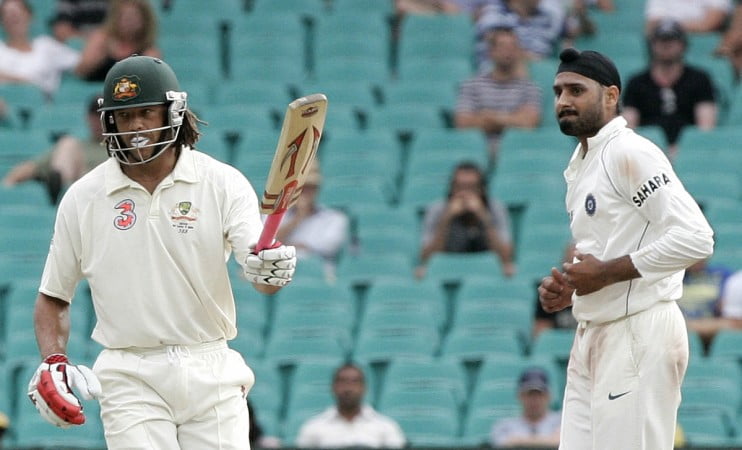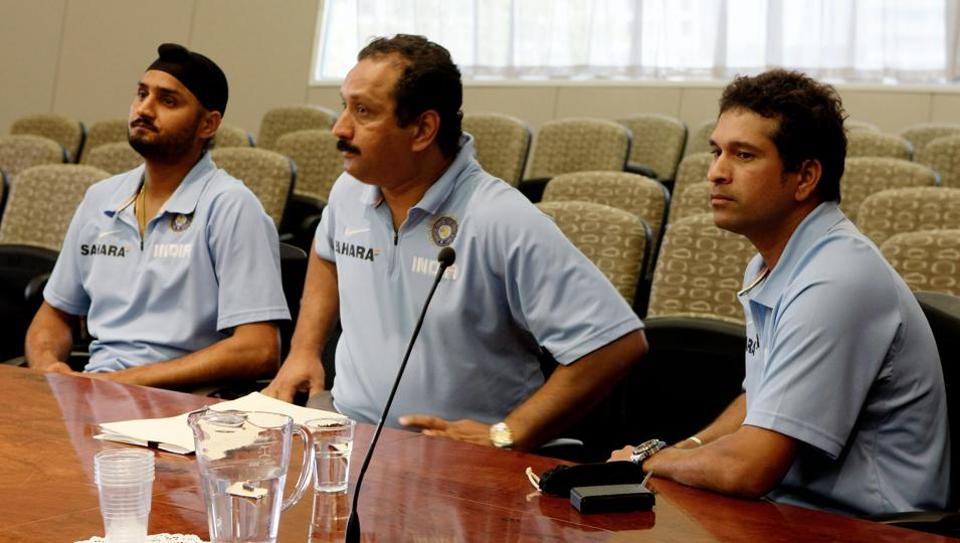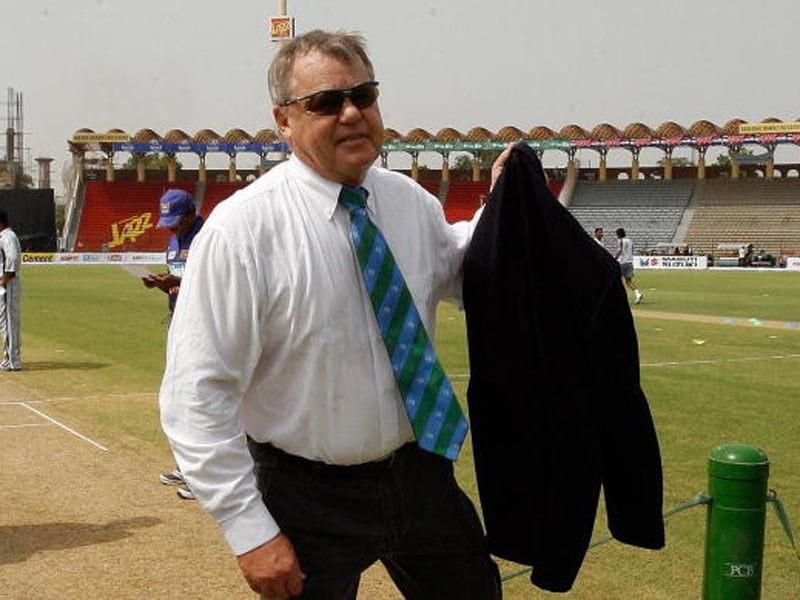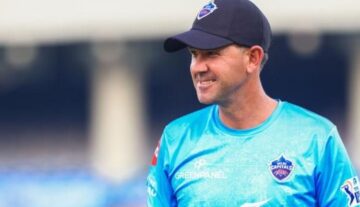10 years ago, Australian skipper Ricky Ponting complained to match referee Mike Procter about Harbhajan Singh calling Andrew Symonds a ‘monkey’. At the hearing, Sachin Tendulkar, who was at the non-striker’s end during the incident, would say he couldn’t make out anything.

Later he insisted that Harbhajan had actually said “teri ma ki c***’, an abusive word in Hindi, but not a racist comment. Bhajji wouldn’t indicate, claiming he couldn’t speak English. The Indian manager, Chetan Chauhan, shown pictures of prince and princess with monkey heads to stress that monkeys were idols and no Indian would insult them.
Also read: Bhajji's special request to fansIn his recently released autobiography, Caught In the Middle, one-time ICC match-referee Procter has recalled the controversial Sydney Test from India’s 2007-08 tour of Australia in a perfectly named chapter ‘Monkeygate and the mess that followed’. The book is co-authored by leading South African cricket writer Lungani Zama and published by Pitch publication.
Recalling those worrisome days after he found Harbhajan guilty of a racial sledge and banned him for three Tests, a verdict that was later overthrown at the appeal where Tendulkar changed tack, Procter says, “the whole thing was bizarre”.

Speaking to The Sunday Express about Tendulkar’s role, Procter says, “It was very disappointing. If he had said that (him hearing Harbhajan say ‘ma ki c***’ and not monkey) upfront, it would have been a whole different version. If Sachin had said that he had heard this, it was to be one person’s word against the other. It was going to create doubt and so he (Harbhajan) would not be (held) guilty on racism charges.”
Also read: CSK's head coach gets backElaborating in the book, Procter wrote: “The words ‘monkey’ and ‘ma ki’, heard 22 yards away, must sound very similar, and that entire episode could have been a high-profile case of lost in translation. But Tendulkar never came forward with that version to us in the initial hearing, which left me with very little choice.”
About Harbhajan’s self-confessed semantic limitations, the South African great says, “Harbhajan speaks English as good as I do. So he (Queen’s Counsel Nigel Peters, the ICC-appointed legal help at the hearing) said that they can have an interpreter, but he refused. Harbhajan didn’t offer anything… it was surprising that he did not argue.”
In the book, Procter wrote that India’s lack of arguments left him with no choice. He elaborated, “He (manager Chetan Chauhan) informed Ponting that the racism charge was completely made up because as Indians, it was just not possible for them to be racist… To throw out Australia’s charge on the assumptive grounds that it was impossible for Indians to be racist would have made a mockery of the entire hearing.”
Also read: When Sachin's snatched a limbuRemembering Chauhan’s statements, he writes: “Chetan then produced an album of photos, with princes and princesses in regal dress, but with monkey heads. He said that monkeys were an Indian deity, further reiterating their point that the entire episode had been made up because they wouldn’t want to insult monkeys.”
In his biography, Sachin had given his version of the events as he wrote, “The incident arose because Andrew Symonds had been continually trying to provoke Bhajji… While walking up to Bhajji to try to calm things down, I heard him say ‘Teri maa ki…’ to Symonds. It is an expression we often use in north India to vent our anger, and to me, it was all a part of the game.”

Tendulkar wasn’t happy about the hearing either as he described, “I had taken exception to us being labeled liars by the match referee, Mike Procter, who had mentioned in his statement that ‘I believe one group is telling the truth’. That he banned Bhajji for three Test matches seemed to us to show which group, in his opinion, was lying. It is never a pleasant thing to be called a liar and I was extremely angry. In the end, justice prevailed.”
Also read: When Rohit Sharma got hold of the spidercam
What makes Procter sad is how he implicitly received a lot of hatred from the country that he is very fond of. Mike elaborated, “I have always really enjoyed India, I got along with the people there. I was the coach of the South African team that visited India in 1991. I played against India for Gloucestershire. I enjoyed match-referring India games. But after the Harbhajan Singh thing, suddenly people were not that friendly. I don’t want to mention any names but I have seen one or two ex-players, they too weren’t really friendly.”
It didn’t end there; Procter was the last-minute strange exclusion from the list of match-referees for the 2009 Indian Premier League that took place in South Africa about a year after the Monkeygate affair. Describing the same, Mike wrote, “I was phoned by a woman who was handling the umpires and match referees. They sent me the itinerary. Lalit Modi was the in-charge at that time, he had to countersign, it was a formality and then they said ‘No’. I heard through a friend of mine they had blackballed me.”
Also read: Harbhajan finally got the IPL dealDescribing the two guilty parties, Procter said, “Eventually the two guilty parties were Andrew Symonds and me. He is being told that he is a liar and that crucified his career, I know. The whole ‘Monkeygate’ scandal started to make sense to me in the months and years that followed, as I learned that Cricket Australia had leaned heavily on the players to take the racism allegation away, and instead make it a matter of abuse. The looming threat of India pulling out of the tour would have major repercussions for Cricket Australia, and a potential lawsuit from the big broadcasters.”
Concluding the incident, Mike Procter wrote, “That, to me, was incredible. How a national board could try to convince senior players to downgrade an allegation as serious as racial abuse, in order to maintain ties with another board was mind-boggling, but it was the first time I realized just how much of a stronghold India had on the game.”




